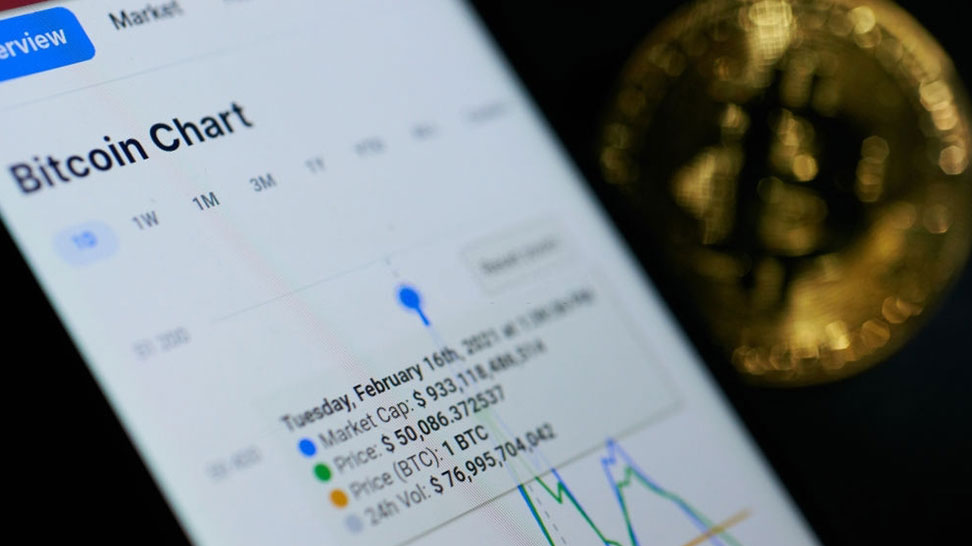Banks and Cryptocurrency
Cryptocurrency has recently soared to become a common form of digital currency in the last few years. However, with cryptocurrency’s rise in popularity for investment opportunities and as a form of payment for products or services through online suppliers, not all domestic and foreign banks recognize it as a viable form of currency. When doing your research on what banks will accept cryptocurrency it is important to search for bitcoin-friendly or crypto-friendly banks that will support the purchase of Bitcoin (a form of cryptocurrency) using money from your own bank account.
Why Don’t All Banks Work with Cryptocurrency?
Before understanding the reasons not all banks work with cryptocurrency, it is important to understand what exactly cryptocurrency is. Cryptocurrency is a type of currency that uses digital, data files as a form of money, thus there is not a physical currency like a dollar bill but rather a set of data files that stores and exchanges values. Those data files are stored in secure, encrypted blocks of data also known as blockchain. It is the blockchain technology that enables cryptocurrency because it acts as a distributed ledger—a list of transactions that serves as a public financial transaction database. The cryptocurrency within the blockchain can come in multiple forms like Bitcoin, Litecoin, and Cardano, among others.
It is most important to note that cryptocurrency currently uses “decentralized control,” which means it is devoid of any one person or government control. The control of each cryptocurrency works through that secure blockchain. Without control or regulation of cryptocurrency by an entity there is major volatility of cryptocurrency.
Cryptocurrency can be seen as a high risk to banks. Banks are in the business of making money and with the volatility of cryptocurrency, banks could lose hefty investments when there is even a slight change in cryptocurrency.
It is equally as important to note that banks do not want to work with cryptocurrency because of volatility but cryptocurrency could essentially render cash useless in the future—a direct threat to banks that work in fiat money. As stated before, cryptocurrency technologies are created and transacted as decentralized and operate in an open source environment. So, cryptocurrencies are controlled by code and transactions are made by peer-to-peer networks. This essentially eliminates the use for fiat money, a middleman, and the banking systems.
What are the Best Banks that Accept Cryptocurrency?
Despite the threat cryptocurrency may pose to banks, it is becoming more common for banks to accept cryptocurrency as a form of digital currency because they are seeing the value in cryptocurrency technology.
There is no one best bank that accepts cryptocurrency. As a savvy investor, it is important to research specifically bitcoin-friendly and crypto-friendly banking options in order to fit your financial needs.
Banks in the United States that Accept Cryptocurrency
- Ally Bank – Linking your bank account to Coinbase allows for the purchase of Bitcoin using an Ally Bank issued debit card
- Chime Bank – Bitcoin purchases are allowed through Paxful
- Goldman Sachs – Newly adopted altcoin trading desk and altcoin product offerings
- USAA – Allows for purchase of Bitcoin using a USAA issued debit card as well as allows bank transfers and wire payments for the purchase of Bitcoin
While banks are slowly accepting cryptocurrency, there are several banks that have banned or limited Bitcoin purchases.
Banks in the United States that have Explicitly Banned or Limited Cryptocurrency
- Bank of America
- Capital One
- Chase
- Chime Bank
- CitiBank
- Citigroup
- Discover
- PNC Bank
- TD Bank
- Wells Fargo
How to Open a Bank Account for Cryptocurrency
Should you want to open a bank account for cryptocurrency it is important to understand your financial goals and then do the research on what bank would be best for you.
As you begin your research, consider the following:
- Banking Regulations – You’ll first need to consider what country you want to bank in and then investigate the banking regulations in that country as it pertains to accepting crypto-related clients, crypto-related activities and crypto-related banking.
- Country of Residence – Your country of residence or where your business is in incorporated (where you pay business taxes) may impact whether you are a high- or low-risk candidate.
- Source of Funds – There is a level of anonymity associated with the nature of cryptocurrency technology. This may make proving a source of funds via cryptocurrency challenging. You’ll need to identify and prove cryptocurrency income before opening a bank account for cryptocurrency.
Once you do your due diligence on understanding, researching and tracking these items you can move forward in opening a bank account for cryptocurrency with confidence.
Can You Buy Cryptocurrency through Banks?
In the United States it is possible to buy cryptocurrency using a cryptocurrency exchange that accepts USD ACH bank transfers. A cryptocurrency exchange is a platform that matches buyers and sellers. As a simple example, through a cryptocurrency exchange you can transfer fiat money using an ACH bank transfer in exchange for cryptocurrency like Bitcoin. There are multiple types of digital currency or cryptocurrency exchanges you can use to buy cryptocurrency with a bank transfer in the United States including, Gemini, Coinbase, Paxful, Revolut and Robinhood, just to name a few.
Steps for buying cryptocurrency with the fiat money in your bank account are simple.
- Create a Wallet – Before you begin buying, it’s important to set up a wallet. You can keep your money in a cryptocurrency exchange, but it is not advisable to keep it there for a long period of time. By setting up a secure wallet you can store your investment.
- Register an Account with a Cryptocurrency Exchange – After doing your research, select a digital currency exchange (like those listed above) that accepts ACH bank transfers.
- Link Your Bank Account – Within the cryptocurrency exchange, link your bank account, which may require providing your online banking and password, as well as your bank name, routing number, account number and account type.
- Buy Cryptocurrency – Through your exchange you can begin to buy cryptocurrency, which may come in the form of Bitcoin, Litecoin, Ethereum, etc., depending on your chosen investment.
- Transfer Your Cryptocurrency to Your Wallet – To secure your cryptocurrency purchase, transfer your digital currency off the exchange and into your wallet.
What Will Be the Future of Banks and Cryptocurrency?
As the sophistication of cryptocurrency and blockchain technologies continue to evolve these technologies hold great promise for consumers to invest and use various forms of digital currency for goods and services all through the tap of a button via online suppliers. However, although cryptocurrencies bring great convenience, they come with high risk and volatility. As a decentralized form of currency, should cryptocurrency continue to be adopted as a mainstream form of currency, cryptocurrency could eliminate fiat money putting the banks out of use.
Despite this risk, we’re seeing a trend in the rise of cryptocurrency acceptance from banks as they see the value in the blockchain technology and a willingness from consumers to adopt digital currencies. The future of banks and cryptocurrency is uncertain but as the technology advances, we could see more and more banks investing in cryptocurrency and blockchain technology strategies.
If you have more questions about crypto related topics or even estate planning and estate protection don’t hesitate to contact Blake Harris Law. You can reach us out through our contact page.


